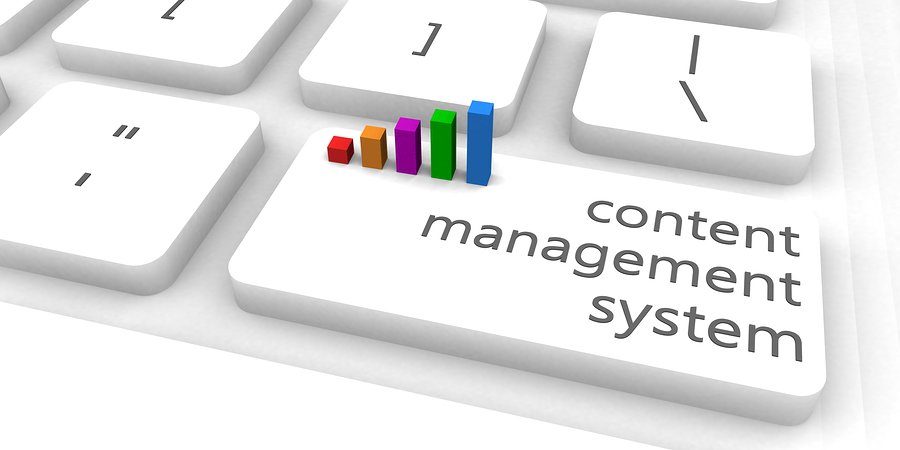The advancements in medical technology have made it easy for patients to consult their doctors whenever necessary with the use of video. That means that most patients can see their doctors pretty much when needed with reliable video solutions.

Different healthcare providers regulated by HIPAA rules use video conferencing tools to provide services to their patients.
What is a HIPAA Complaint Video?
HIPAA is the acronym for Health Insurance Portability and Accountability. It’s a federal law that ensures that national standards are met to protect sensitive patient health information.
HIPAA compliant video is video conferencing that meets all the requirements of the HIPAA regulations.
There are different ways healthcare can protect private video content by following HIPAA regulations, and they are as follows –
Train staff on healthcare privacy to protect private video content
Training staff on healthcare privacy is one of the best ways to ensure that you have protected private video content in your healthcare system. It ensures that the staff is aware of all proper privacy measures to take to ensure all the organization’s data is secure.
Healthcare organizations can achieve this by hiring a cybersecurity expert who will guide the staff on various malpractices that may lead to data loss or make the company prone to attacks by fraudsters.
According to the HIPAA security rule, training staff of healthcare privacy should be offered periodically.
It helps to reinforce the need for compliance and reduce the risk of accidental violations by exposing the healthcare video content of a patient.
Training staff on privacy helps the staff to understand the penalties that they may accrue as a result of interfering with healthcare video content.
The training should be offered to all business associates handling this information. Training also ensures that your employees can easily detect potential fraud and alarm the management before things get out of hand.
Update the healthcare software to secure video communication
Updating the organization’s systems and software or online tools is a critical step towards ensuring that the video content of the organization is safeguarded.
With time software becomes outdated, which means that the healthcare system can easily be hacked and all the content of the organization can be released to the general public.
HIPAA stipulates that when software update patches are no longer being issued for the software, it must be upgraded to ensure that it’s not an easy target by the fraudsters.
Sometimes you can even download or buy the latest update of the healthcare software that is available on the market.
When software is updated, new features for security maintenance are added, making it possible to manage the risks that may arise effectively. It is important to ensure that most of the software is set to update automatically.
Control access to healthcare information
When dealing with private video content, the healthcare organization needs to choose who can access the content of the video being stored.
It’s no surprise that most of the leaked information in different organizations is associated with some employees. That means that not everyone in the organization should have access to the stored patient and video communication data.
The access to data of the patients should also be undertaken with the help of the medical practitioners in the organizations.
HIPAA states that patients should access their information as per the American Health Information Management Association. If you face challenges in controlling video content access, you can use a video enterprise solution to help secure private video content of your healthcare organization.
Why proper password management is extremely important in the healthcare industry?
There are basic rules that apply to proper password management that should be observed to avoid the risk of sharing patients’ information. They include restricting sharing of the passwords, changing passwords upon the indication of suspicious activity, and considering paraphrasing.
HIPAA only requires passwords when used to track different users’ activities on the data systems.
Ensure that you instruct your team to include a password for all privately shared video content about the patient’s health status.
Sensitize and inform employees formally that making use of the same password every time they share files containing videos is a bad practice.
Healthcare employees must know the best ways to generate strong passwords and change them at regular intervals. Apart from password inclusion, there are different features and solutions in the video security component that are important for healthcare.
How does a Video Enterprise solution help you achieve HIPAA Compliant video requirements easier?

Video enterprise solution is a content management system built for unique needs that assist in managing video content that is released online.
Different enterprise video platforms are available on the internet.
When choosing the video solutions platform to use, you must make sure that you understand the set of requirements and priorities needed in the report.
There are different ways the Video Enterprise solution can help achieve HIPAA Compliance easier by offering video security, video privacy, and breach notifications services.
Which video features and solutions in the video security component are important for healthcare?

Different video features are implemented in the video security component by the health professionals to have more control and access to their personal information.
These video features help implement stricter patient portal security measures to ensure that the patient’s data is protected from unauthorized video access.
That’s why most health practitioners have adopted secure patient portals and mobile apps to facilitate secure communication and patient care management. They can ensure that the patient’s information is kept private and secure through this.
Here are the features and solutions in the video security component that are important for healthcare –
- Domain Lock with Video Hosting
- Password Protect Videos – Video Security
- Single Sign-On (SSO)
- Watermark and Video Branding
- Authorized and Registered Users
- Perform layered defense mechanism with private video hosting
- Perform Risk Management
Domain Lock with Video Hosting
The domain lock is a security setting that helps to prevent unauthorized attempts to transfer your domain to another registrar. You can update your contact information and other necessary changes to the domain settings when it’s locked.
Unfortunately, if you want to transfer your domain, you must make sure that you unlock it first.
When working in the healthcare sector, you must ensure that the patient’s data is protected from unauthorized access by third parties.
Domain locking is important in ensuring that unauthorized third parties won’t misdirect your name servers without being notified. Make sure that you review the domain lock portfolio regularly.
Reviewing your domain regularly also prevents DNS hijacking, a constant threat to most medical practitioners.
Using the registry locks and updating the information on the Notice of Privacy Practices form for the patients ensures that the company complies with the HIPAA standards.
Password Protect Videos – Secure Video Hosting
When dealing with the health information of different patients, it’s important to regulate the kind of patient information you are sharing.
HIPAA outlines the different rules that health providers can use when dealing with patients’ data. The regulations clearly state the information that healthcare professionals can disclose without the patient’s information and the data that needs an explicit approval of the patient before being shared with authorized personnel.
This privacy rule sets national standards for protecting different individuals’ information. The information may include patients’ medical treatments and is not limited to their payment history.
In your health organization, make sure that only authorized persons can access the patient’s data by requiring password login for all organization’s systems that contain the protected health information.
It’s also vital to change the default passwords that come with the systems or different programs immediately after installations.
If possible, consider phrases rather than passwords for the systems that contain highly sensitive data belonging to the patients. Patients should be allowed to have access to their health information with the guide of a medical officer.
Single Sign-On (SSO)
SSO is the abbreviation for single sign-on. SSO is an user authentication service that permits authorized users to only use one set of login credentials.
In health care, it allows the medical practitioners to maintain an account that automatically logs them into multiple programs containing patient’s data without having to remember different passwords.
This identity management in health is a very important aspect of HIPAA compliance.
Nowadays, more applications can be offered from the same cloud or health organizations, making it necessary to consider some form of single sign-on.
SSO helps to increase IT control while ensuring that medical practitioners can securely access the applications they need.
It is vital to make sure that all identities in healthcare are tightly secured to ensure compliance with HIPAA requirements. That’s because health industries are most frequently targeted by hackers, making it necessary to protect the patient’s information.
Using SSO feature will allow your health organization end users to leverage their single identity-based in their cloud management tooling for the cloud-based programs with the patient’s information.
Some SSO providers have multi-factor authentication to make identity access more secure by preventing any form of unauthorized access to the patient’s information.
Watermark and Video Branding
A watermark is a pattern, logo, or text that is intentionally superimposed onto another image, and it makes it hard for the original images to be copied without permission.
Digital watermarks are highly used in health sectors to verify the carrier signal’s integrity or show the owners’ identity clearly.
Currently, HIPAA focuses on the current digital image and private video security to ensure the secure transmission of different data to authorized recipients.
HIPAA focuses only on secure storage, access, and proper transmission of the data, but it offers no protection mechanism after releasing this information to unauthorized parties.
Watermark has helped enhance the patient’s privacy by acting as a deterrent against all forms of illegal distribution of their information.
Watermarks and video branding can help a healthcare organizations to track their security breaches and catch violators by following their activities.
Authorized and Registered Users
It’s often referred to as the viewer’s protection.
Viewer’s protection by HIPAA privacy rule establishes national standards to protect different individuals’ medical records and other related personal information about their health.
It also applies to their patient health plans and their electronic transactions. These standards of viewers protection cover both the business organization and the patients by protecting all the virtually identifiable information from unauthorized access.
Viewer’s protection under HIPAA also ensures that in case of any breach of information, the breached entity must notify the health organizations affected. The main security safeguards protected by this feature are administrative, physical, and technical.
The authorized users only allow registered users to log in and view the health information they are searching for.
The information should securely be stored to ensure that one cannot easily tamper with the system for personal gain.
Perform layered defense mechanism with private video hosting
A layered defense mechanism is vital when dealing with private video hosting.
When administering health services online, it’s important to make sure that the content of the video is protected from unauthorized access by hackers.
Having a layered security system will ensure that the content of your video is secure and cannot be manipulated easily by any of the parties in the organization.
Layered security means that the fraudster will have to encounter different security layers before getting the patient’s video content.
Before that, a notification will have been pushed to you or the video security team of your organization, and the breach will be thwarted within the shortest time possible.
Perform Risk Assessment
Risk assessment is one of the best ways to protect healthcare video content by assessing possible vulnerabilities.
It makes it much easier to protect the organization’s health information against attack by identifying potential risks and any other vulnerabilities to the confidentiality of the video content.
Risk management also ensures the integrity of all PHI that the organization has created, received, and transmitted inside and outside healthcare.
While performing risk assessment, you will ask about the actual and the potential exposure of the patient’s healthcare video content. It comparatively costs lower when you compare it with the potential risk of patient information.
Risk assessment ensures that you have a clear understanding of all the security issues your organization might face. When conducted properly, you can easily plan on the software programs you will install in your systems to protect your patient’s video content.
HIPAA requires that organizations conduct a risk assessment and implement measures annually to safeguard the healthcare organization’s data. You can also choose to do it regularly as it’s not a one-time event per year, especially when you are frequently changing your software systems.
Cincopa is a secure video hosting platform with robust security features that is being used by various healthcare organization. Cincopa helps in securing healthcare video content with top of the class video encryption and security feature.
Contact us to find out more about healthcare video encryption technology.









